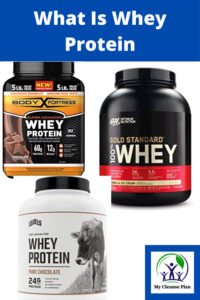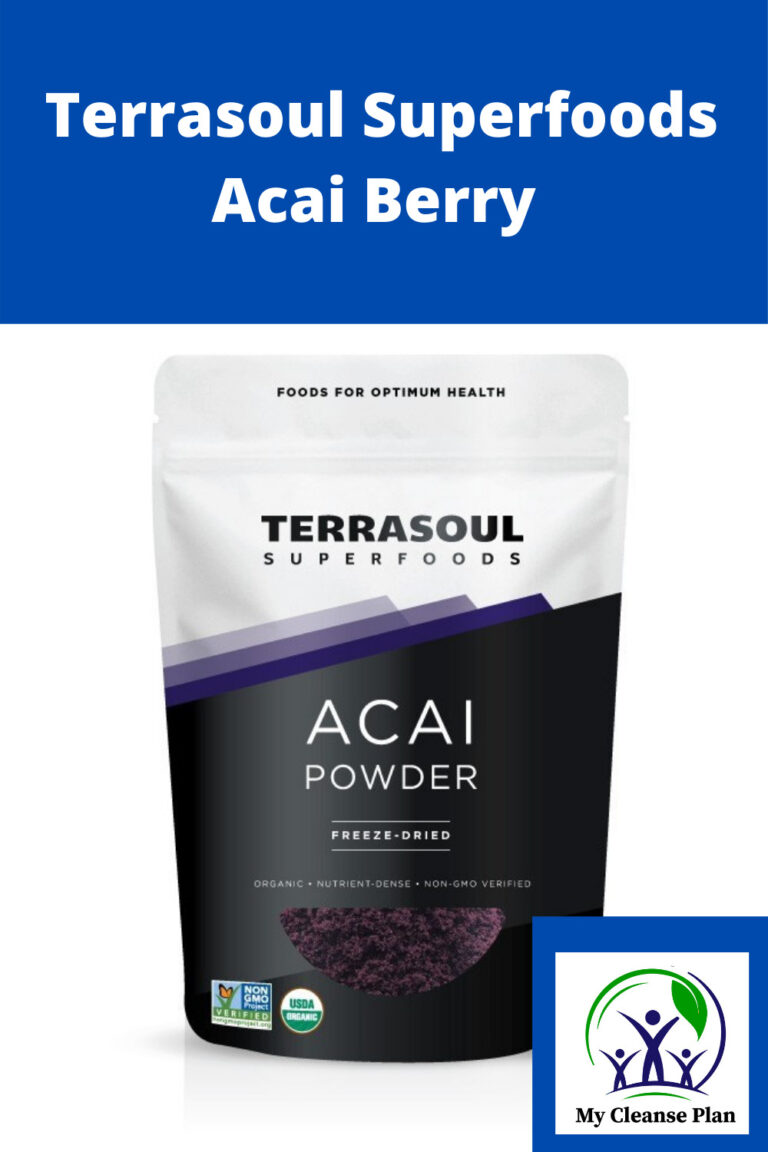What Is Whey Protein: The Benefits And Dangers
What Is Whey?
Whey protein can be defined as a combination of proteins that are extracted from whey. Whey is the liquid part of milk that is separated during the production of cheese.
There are two major types of protein that are found in milk; they are; casein which is 80% and whey 20%. Whey is present in the liquid portion of the milk coagulate and the whey is obtained from it as a byproduct (R).
Have you ever noticed for once that when you open a yogurt container, there is a liquid substance that floats at the top, this liquid is known as whey.
Makers of cheese usually dispose of it before they identify its great commercial importance (R).
After it has been separated during the production of cheese, the whey is subjected to various processing steps before its metamorphosis into what people know as whey protein.
This is a powder added to shakes, meal replacements, and protein bars (R).
Ordinarily, whey protein does not taste good on its own, as a result of this, it must be flavored. Chocolate, vanilla, and strawberry-flavored powder are well-known.
Care must be taken to ensure safety as some of these products can contain unhealthy additives such as refined sugar.
One of the best ways to supplement about 25-50 grams of protein to your daily intake is by taking whey protein.
This has been found to be of great importance to bodybuilders and sports enthusiasts, and also for people that need to lose weight or those who are deficient in protein in their diet.
A lot of flavored whey proteins are also very delicious and serve as a way to supplement the unbelievable taste of healthy recipes such as smoothies.
Wheat is generally well accepted, but individuals with lactose intolerance should be careful and some people may be allergic to it (R).
Types Of Whey Protein
There are many types of whey protein; the difference that exists between them depends on the way they are processed during production;
Below are the three major types of whey protein:
1. Concentrate: This type of whey protein contains approximately 70 to 80% of protein; it has some lactose (dairy sugar) and contains fat that has the best flavor.
2. Isolate: Isolate contains 90% protein or more; the lactose and fat content are low and there are not many useful nutrients contained in the whey protein concentrate.
3. Hydrolysate: This can also be referred to as hydrolyzed whey; this species has been predigested to hasten its absorption. It results in a 28 to 43% increase in the level of insulin (R).
Whey protein concentrate seems to be the best option.
It is cheaper and it retains most of the useful nutrients naturally present in whey. A lot of people also favor the taste, which is because of the presence of lactose and fat.
In the event that you have difficulties coping with concentrate, or you are trying to place emphasis on protein when keeping a low level of carbohydrates and fats, whey protein isolate or even hydrolysate may be a better choice.
Note that despite the fact that concentrate is the most famous form; a lot of research has been carried out on whey protein isolate.
Why Use Whey
It is known that proteins can help in weight loss because it is by far the highest quality macronutrient (R).
Proteins can increase energy consumption by 80 to 100 calories a day and encourage people to automatically consume up to 441 calories per day (R, R).
According to a study, it was revealed that consuming 25% of daily calories as a protein cut short cravings by 60% and reduced the desire for late enjoyment by half (R).
Taking whey protein has been attributed as one of the great ways to spike your consumption of protein, which should have great benefits for weight loss.
Research has shown that the replacement of other calorie sources with whey protein in combination with bodybuilding can result in a weight loss of about 3.5 kg with muscle mass increase (R).
On the off chance that you are trying to lose weight, whey protein supplements can help you lose weight and maintain muscles (R, R).
What Are The Benefits Of Whey?
1. Whey can help in weight loss: According to a study done on 158 individuals, published in the Journal of Nutrition & Metabolism, people who received whey “lose significantly more body fat and show better muscle mass preservation than subjects who consume only the controlled beverage.”
2. It has anti-cancer Properties: Promising results have been published in the Journal of Anticancer Research regarding the use of whey protein concentrates in the treatment of cancer. Further research is needed.
3. Reduce Cholesterol: The study published in the British Journal of Nutrition, administer whey supplements to 70 men and women that are overweight for 12 weeks and recorded a number of parameters, such as lipid and insulin levels. It was discovered that “there was a dramatic reduction in the total cholesterol and LDL cholesterol in the 12th week in the whey group compared to casein (groups)”.
4. Asthma: Whey protein has been found to help in boosting the immune response in children with asthma. A small study of 11 children, published in the International Journal of Food Science and Nutrition, revealed that asthmatic children who received a 10-gram whey protein supplement twice a day during a month had an improved immune response.
5. Blood Pressure and Cardiovascular Disease: A study published in the International Dairy Journal has shown that whey protein drinks significantly reduce blood pressure in hypertensive patients; their risk of developing heart disease or stroke is also reduced.
6. Whey reduces weight loss in individuals living with HIV: Research published in the Journal of Clinical and Investigative Medicine showed that whey proteins can help reduce weight loss in HIV-positive patients.
What Are The Dangers Of Whey Protein?
The possible dangers of whey
The possible dangers which can occur when whey protein is consumed at higher doses are abdominal pains and cramps.
A lot of individuals who are allergic to milk may be allergic to whey. In moderate doses, whey proteins generally do not cause any adverse events.
However, the consumption of very high doses can lead to the development of the following conditions:
- Stomach pain
- Cramps
- reduced appetite
- Nausea
- Headache
- Tiredness
High and constant whey protein doses can also cause acne. From a nutrition school of thought, whey proteins are very unusual and do not have a natural equivalent.
A lot of individuals are of the opinion that there are risks from nutritionally refined foods such as these because, although they contain many nutrients, the balance is highly protein-bound.
Consumption of whey protein is an extremely healthy way to add more protein to your diet. It is a source of quality protein that is absorbed and effectively used by the human body.
This is especially important for athletes, bodybuilders, or people who need to gain muscle mass and strength while losing fat.
In terms of muscle growth and fat loss, protein is the king of nutrients. Whey protein seems even better than other forms of quality protein.
Explore Also:
Creativehouseblog
Dietsheriff
Gigasecurehome
Final Thoughts On Whey
As you can see, whey has many advantages and a few disadvantages. Like anything, when used correctly, whey can be a very beneficial part of any diet. Whether you are looking to add lean muscle or lose weight, there are plenty of whey products available to help you achieve your goals.
If you have any concerns about using a whey product, please discuss this with your doctor. They will have a better idea of how they may benefit your specific needs.
Here is a PIN you can share with your friends on Pinterest:








![Gut Health Tips for Runners, Athletes & Endurance Fueling Performance[1]](https://mycleanseplan.com/wp-content/uploads/2025/11/Gut_Health_Tips_for_Runners_Athletes__Endurance__Fueling_Performance1-768x448.jpg)



![New Year, New Gut Resolutions That Actually Help[1]](https://mycleanseplan.com/wp-content/uploads/2025/11/New_Year_New_Gut__Resolutions_That_Actually_Help1-768x448.jpg)

You note that people who are allergic to milk may be allergic to whey. I’m lactose intolerant, so is there any way for me to know if I would be allergic to whey before I go out and purchase a big canister or protein powder?
Hi, the best thing to do if you are lactose intolerant is to check with your doctor before purchasing any whey products. However, there are whey products that are specifically “lactose free”. Total Activation makes a few whey products that are lactose free and low cholesterol.
You can check them out here.
Thank you for your question,
Jim